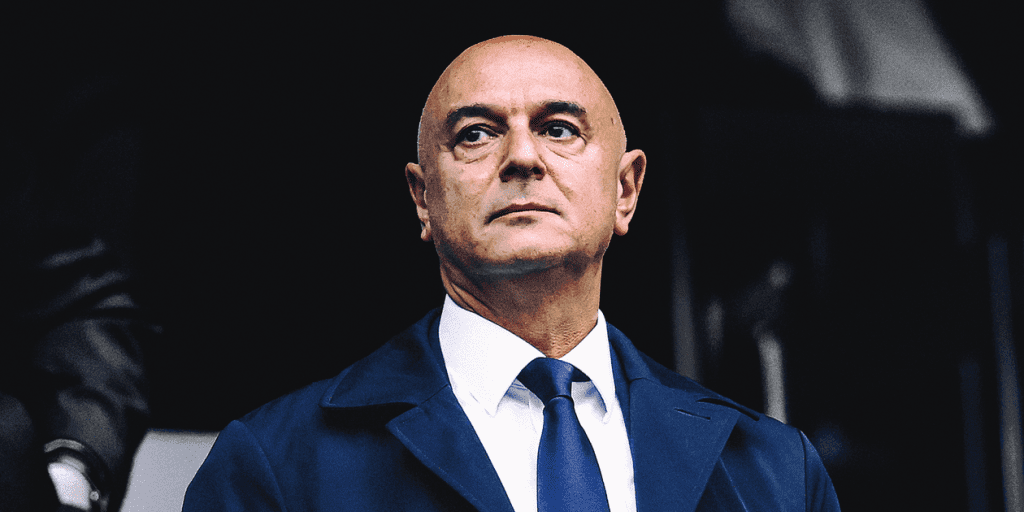The Evolution of Tottenham Hotspur: A New Chapter Begins
Since the turn of the 21st century, Tottenham Hotspur’s narrative has revolved around the relationship between Daniel Levy, the long-time chairman, and the Lewis family, the majority shareholders. Levy commenced his journey with Joe Lewis in the 1990s, initially considered his mentee, and became managing director of ENIC, the investment firm that acquired a 29.9% stake in Tottenham from Alan Sugar in December 2000 for £22 million.
Levy took the chairman’s seat in 2001 and maintained a firm grip on Tottenham for 24 years, transforming the club into a global brand valued at around £4 billion ($5.4 billion) and housing one of Europe’s premier stadiums. Throughout this time, the Lewis family preferred to remain in the background, allowing Levy to serve as the face of the club.
However, on September 4, a pivotal shift occurred; Levy was informed of his removal as executive chairman. Peter Charrington, the ENIC director appointed by the Lewis family in March, is set to take on the role of non-executive chairman. This announcement took many staff by surprise, as the news was revealed through a joint email from CEO Vinai Venkatesham and an official statement confirming Levy’s departure.
While the abrupt change was shocking, its roots can be traced back to earlier in the year when the Lewis family began questioning the team’s poor performance, which had left fans frustrated. Despite clinching the Europa League title in May, the previous Premier League season marked Tottenham’s worst in nearly 50 years. The club had only once made the top four since its Champions League final appearance in 2019.
Seeking clarity, the Lewis family enlisted U.S. consultancy firm Gibb River to investigate the organization’s issues. This review sought to identify necessary changes for the club’s improvement, rather than merely focusing on cost-cutting. Concurrently, Charrington’s entry to the board in March and the appointment of Vinai Venkatesham as CEO signaled a shift in management perspective.
Levy, regarded as one of the most influential chairmen in the Premier League, maintained tight control over club decisions, often personally involved in negotiations and operational strategies. Yet, Venkatesham’s arrival and the fostering of a more communicative environment suggested a new direction, ramping up expectations for change. However, Levy’s removal solidified this shift, paving the way for a post-Levy era at Tottenham.
As the Lewis family takes the reins, questions about their long-term vision for the club arise. With no immediate plans for a full sale, they must now confront challenges like competition with wealthier clubs and questions regarding player management. The legacy of Levy’s tenure is now up for contemplation as the club enters this new phase, striving for consistent success and fan satisfaction.



